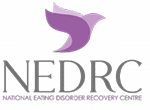Russell’s sign, named after British psychiatrist Gerald Russell, is a sign defined as calluses on the knuckles or back of the hand due to repeated self-induced vomiting over long periods of time.
This type of scarring is considered one of the physical indicators of illness and Russell’s sign is primarily found in patients with an eating disorder such as bulimia nervosa or anorexia nervosa. However, it is not always a reliable indicator of an eating disorder; there are many more factors associated with it.
Bulimics who are capable of “handsfree purging”, or the induction of vomiting by the willful opening of the esophageal sphincter in a manner similar to belching, while contracting the stomach muscles, do not have Russell’s sign.
Bulimia nervosa is characterized by purging habits, typically including vomiting, diuretic abuse, and laxative abuse. These behaviors can be incredibly painful and harmful to the body. The physical side effects of bulimia are sometimes difficult or impossible to treat. Many different organ systems in the body are affected by this eating disorder.
Russell’s Sign can be a tell-tale sign of self-induced vomiting, with scratches noted on the back of the hand caused by putting one’s finger into the throat to induce a gag reflex.
Bulimia and the physical affects require treatment by a medical doctor or eating disorder clinic such as NEDRC based in Dublin. Ultimately, recovery from bulimia nervosa is the only reliable method of preventing or healing these effects. For many patients, the occurrence of physical effects can serve as a wake-up call to the need for help and the importance of seeking treatment.
Fortunately, there is good, established eating disorder treatment, with strong evidence for its effectiveness. Bulimia treatment is based on a CBT (cognitive behavioural therapy) based approach, supporting individuals to consider the links between their thoughts, feelings and behaviour. It is a practical, problem-solving approach and in bulimia treatment, the triggers for a binge are considered and how this could be overcome by changing the pattern of thoughts, feelings and behaviour.
Treatment is almost always provided in an outpatient setting , unless there are other problems which necessitate an inpatient admission. Group support may also be helpful.
Seeking treatment for bulimia as early as possible is very important, both in terms of reducing your risk of long term, enduring physical side-effects and because it is recognised with bulimia and other eating disorders, early treatment is linked to better outcomes.
link
Getting help
If you would like to discuss the concerns you have about a love one, contact NEDRC in confidence. We are happy to listen and guide you through.
NEDRC can help you and your loved one take that vital step to regain a happy, healthy life. Please use the contact details below to find out about our eating disorder treatment options available to you and your loved one. Contact NEDRC
Telephone: 01 564 4450 or Mobile: 087 7755996 / Email enquiries@nedrc.ie
For referrals from Healthcare/ Therapeutic professionals please contact via : referrals@nedrc.ie or healthlink@nedrc.ie or online via Healthlink
Healthmail users can send referrals to healthmail@nedrc.ie













